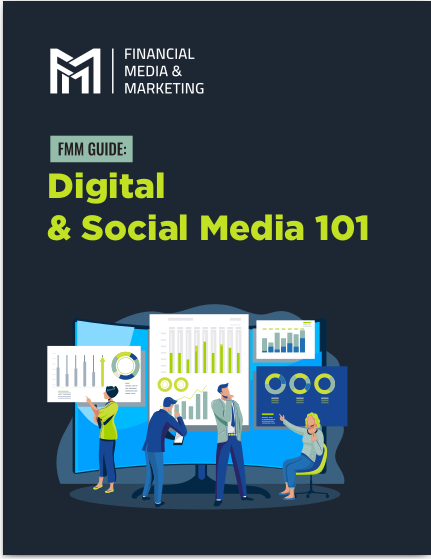Key Takeaways
-
Implementing effective SEO strategies can significantly improve your website’s ranking and increase your lead generation.
-
A combination of content optimization, technical SEO, and local SEO ensures long-term success in attracting the right audience.
Optimize Your Website for Search Engines and Users
If you want to attract more leads as a financial advisor, your website must be optimized for both search engines and human visitors. SEO isn’t just about stuffing keywords into your content—it’s about creating a site that ranks well while also being user-friendly.
Improve Your Website’s Loading Speed
A slow website will not only frustrate visitors but also hurt your search rankings. Google prioritizes fast-loading sites, so you need to ensure your website meets performance standards.
-
Compress images to reduce file sizes without sacrificing quality.
-
Minimize HTTP requests by combining CSS and JavaScript files.
-
Use a Content Delivery Network (CDN) to serve your site from multiple locations.
-
Enable browser caching to store frequently accessed files and speed up loading times.
-
Reduce unused code by eliminating unnecessary CSS and JavaScript.
-
Upgrade hosting to a more reliable and faster server for improved performance.
Ensure Your Website is Mobile-Friendly
More people are searching for financial advice on their mobile devices, so a mobile-friendly site is crucial. Google’s mobile-first indexing means your site’s mobile version is what gets ranked.
-
Use responsive design to adapt your site’s layout to different screen sizes.
-
Make buttons and links large enough to tap easily.
-
Avoid pop-ups that disrupt the user experience.
-
Implement accelerated mobile pages (AMP) for a faster-loading mobile experience.
-
Test your site’s mobile performance regularly with Google’s Mobile-Friendly Test tool.
Optimize Your On-Page SEO
Each page on your website should be optimized to target specific search queries.
-
Use relevant keywords in your title tags, headers, and meta descriptions.
-
Write clear, compelling meta descriptions that encourage users to click.
-
Structure your content with proper heading levels (H2, H3, etc.) to improve readability.
-
Use alt text for images to improve accessibility and SEO.
-
Optimize URL structures by keeping them short, descriptive, and keyword-rich.
-
Improve internal linking strategies to help search engines understand your site’s structure.
Create High-Quality, SEO-Optimized Content
Search engines prioritize valuable content that answers users’ questions. As a financial advisor, your content should demonstrate expertise, authority, and trustworthiness.
Focus on Long-Tail Keywords
Generic keywords like “financial planning” are highly competitive. Instead, focus on long-tail keywords that target specific user needs, such as:
-
“Best retirement strategies for small business owners in 2025”
-
“How to reduce capital gains tax legally”
-
“Financial planning tips for high-income professionals”
-
“Estate planning for families with young children”
-
“Tax-efficient investing strategies for 2025”
Publish In-Depth Blog Posts
Google favors long-form, well-researched content. Aim for 2,000+ words in your blog posts while ensuring they remain engaging and informative.
-
Break up content with subheadings, bullet points, and images for readability.
-
Include internal links to guide visitors to related pages on your site.
-
Regularly update older content to keep it current and relevant.
-
Use schema markup to provide search engines with structured data about your content.
-
Implement a content calendar to maintain consistency and ensure fresh content.
Use Video and Other Engaging Content Formats
Not all users prefer to read lengthy blog posts. Diversify your content by incorporating:
-
Videos explaining complex financial concepts
-
Infographics summarizing key financial trends
-
Podcasts discussing investment strategies
-
Downloadable guides and checklists to provide additional value
-
Webinars and live Q&A sessions to engage with potential clients
Leverage Local SEO to Attract More Clients
Most financial advisors serve clients within a specific geographic area, making local SEO essential. Here’s how you can dominate local search rankings:
Optimize Your Google Business Profile
A well-optimized Google Business Profile (GBP) helps you show up in local search results and Google Maps.
-
Ensure your name, address, and phone number (NAP) are consistent across all listings.
-
Add high-quality photos of your office and team.
-
Encourage client reviews to build credibility.
-
Keep your business hours and services updated.
-
Add frequently asked questions (FAQs) to address common inquiries directly on your GBP listing.
Target Location-Specific Keywords
Instead of just optimizing for “financial advisor,” use geo-targeted keywords, such as:
-
“Best financial planner in [Your City]”
-
“Retirement planning services near me”
-
“Tax planning in [Your State]”
-
“Wealth management in [Your Zip Code]”
Get Listed in Local Directories
Submit your business details to reputable local directories and financial advisor listings, such as:
-
Chamber of Commerce websites
-
Industry-specific directories
-
Yelp, Bing Places, and Apple Maps
-
Local business associations and professional organizations
Build Local Citations and Backlinks
The more websites that mention your business, the more trustworthy your site appears to search engines. Focus on:
-
Guest posting on local blogs and financial publications.
-
Sponsoring community events and getting mentioned on local news sites.
-
Collaborating with local businesses for mutual promotion.
-
Creating location-specific content that resonates with the local audience.
Stay Ahead with Ongoing SEO Efforts
SEO isn’t a one-time effort—it requires ongoing monitoring and adjustments.
Monitor Your SEO Performance
Use tools like Google Search Console and Google Analytics to track:
-
Which keywords are driving traffic to your site.
-
Your website’s click-through rates (CTR) in search results.
-
User engagement metrics, such as time on page and bounce rate.
-
Your competitors’ rankings to identify opportunities for improvement.
Update and Refresh Content Regularly
Google favors fresh content, so make it a habit to:
-
Update outdated blog posts with new insights and data.
-
Identify underperforming pages and optimize them.
-
Add new sections to evergreen content for continued relevance.
-
Conduct keyword research quarterly to adapt to search trends.
Take Control of Your SEO Strategy
If you want to generate more leads as a financial advisor, investing in SEO is one of the smartest long-term moves you can make. By optimizing your website, creating valuable content, and leveraging local SEO, you can establish a strong online presence that continuously attracts potential clients. The financial industry is competitive, but with the right SEO strategies, you can stay ahead and grow your business effectively.










